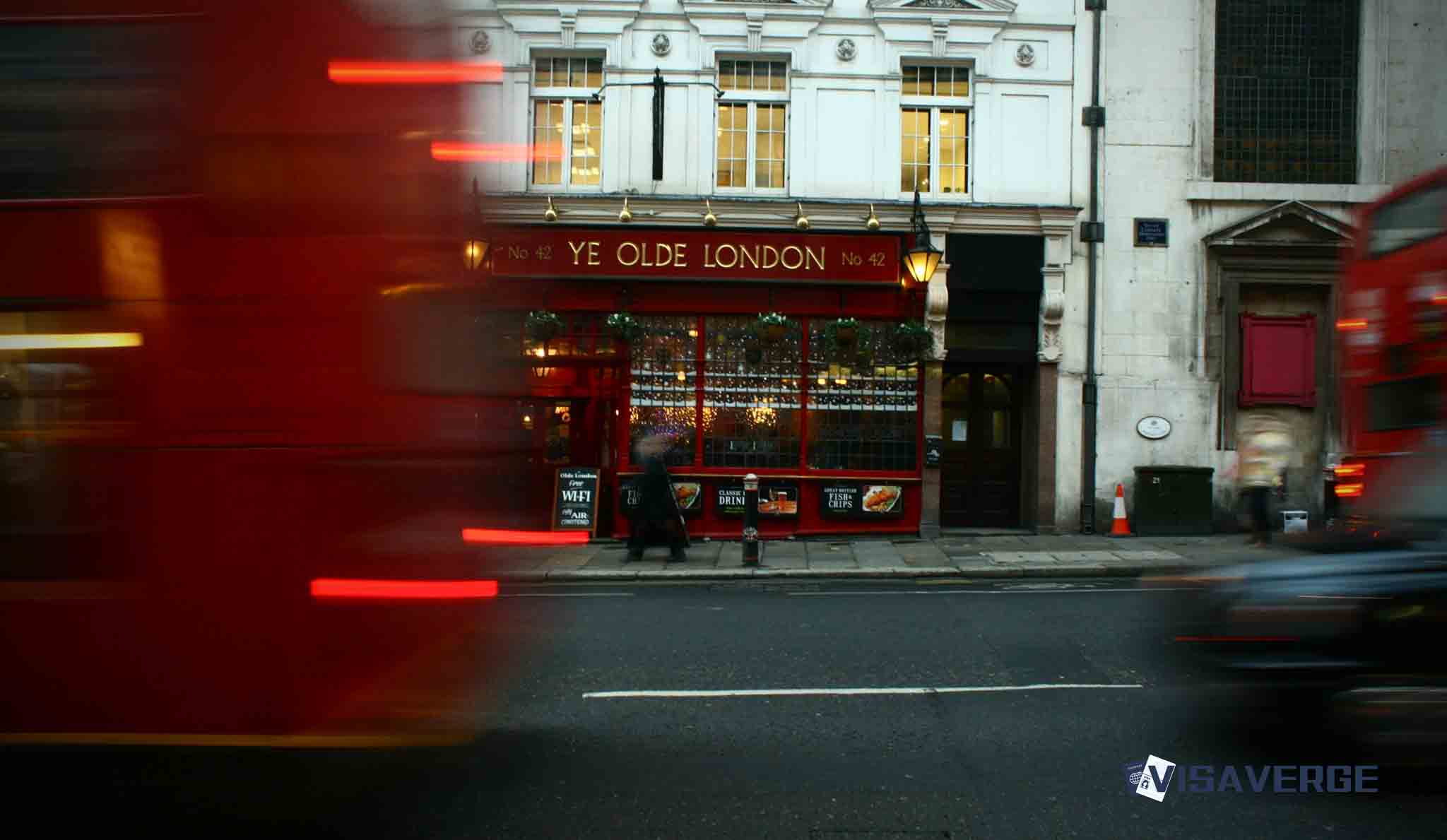(EPPING) The High Court has ordered the relocation of asylum seekers from the Bell Hotel in Epping, Essex, by September 12, 2025, after weeks of rising street clashes and a heated fight over whether the hotel should house people seeking refuge. The interim injunction, granted on August 19, 2025, followed a push by Epping Forest District Council, which argued the hotel’s use breached planning rules and put public safety at risk. The ruling comes after protests at the site turned violent, with police reporting injuries to officers and hotel staff, damaged cars, and multiple arrests. The UK Home Office said it will appeal the court’s decision while it works on a wider plan to end the use of asylum hotels by 2029.
The Epping case has become a national test of who gets to decide where asylum seekers live and how quickly the government can move them out of temporary hotel blocks. Tensions reached a breaking point after a 14-year-old girl was allegedly sexually assaulted by a 38-year-old asylum seeker staying at the hotel. The man denies the allegation but has been charged. The case sparked outrage among some locals, drew in far-right agitators, and brought out anti-racist counter-protesters. Police used crowd-control measures as bottles and flares flew in the narrow streets around the hotel. The scene, unusual for a quiet market town, has pushed Epping into the center of a national argument about safety, fairness, and the limits of local power.

Council leaders said the Bell Hotel never had planning approval to operate as asylum accommodation and is poorly placed for that use because it sits near schools and a care home. They warned that keeping people there risked further disorder. On August 12, 2025, they asked the High Court to halt the hotel’s use for this purpose. A week later, the judge agreed to a temporary block and set a firm deadline for moving people out. The order has already caught the eye of councils in Wirral and Tamworth, which have said they will explore similar action. If they succeed, more hotels could close sooner than the Home Office wants, pressing officials to find space elsewhere.
The Home Office has pushed back, saying hotels are still needed while longer-term options are built up. It says it supports a managed wind-down and will appeal the injunction. A rushed move, officials say, could cause fresh problems, including short-notice transfers that unsettle families and pressure on other towns. The department has not set out exact replacements in public, but it is sticking to its plan to phase out asylum hotels by 2029. That date has become a political marker and a practical hurdle: every new local legal fight makes that path riskier and more complex.
Residents across Epping are split. Some want the hotel shut now. Others say people are being used as targets and should be left in peace while their claims move ahead. At night, the street outside the gates has filled with hand-made signs and loud chants. In the day, parents have worried about the walk to school. Hotel staff have faced abuse. Some guests have stayed in their rooms to avoid cameras and anger outside. Police have warned of further arrests if disorder continues.
One Epping asylum seeker summed up a common plea in a short, plain demand: “Close the hotels and let us work.” That view has echoed in conversations outside the hotel and around town. It taps into a simple idea: long stays in hotels feel like limbo, and people want the chance to move on, support themselves, and settle safely. For now, the court order means moving, not working, will come first. Where the residents will go next depends on the Home Office’s transfer plan and the pace of its appeal.
Court order and government response
The High Court’s interim injunction on August 19, 2025 is the most concrete step in months of dispute. It says the Bell Hotel cannot continue as a site for asylum seekers and orders relocation by September 12, 2025. The judge accepted the council’s case that using the hotel in this way breached planning rules and added to public safety risks. According to the council’s filings, the location near schools and a care home, combined with repeated disorder, made the setup unworkable.
The Home Office responded within hours, saying it will appeal. It has argued that sudden closures can lead to hasty moves, lost possessions, and broken support chains. The department has also stressed that hotels are not the end goal, but a stopgap while other options are put in place. Officials say they support a steady, nationwide program to end hotel use by 2029, but want to keep control over timing to avoid fresh crisis points.
If the appeal succeeds, the move-out could be delayed or reshaped. If it fails, the case may embolden more councils to pursue injunctions, making local planning law a powerful tool against hotel use. Wirral and Tamworth authorities have already said they are preparing or reviewing legal action against hotels in their areas — a ripple effect that could force the Home Office to rethink placements or accelerate moves to other accommodation. That, in turn, could strain the national system if several hotels are forced to empty at once.
According to analysis by VisaVerge.com, the Epping injunction could act like a green light for other councils that have complained for months but hesitated to go to court. If more test cases follow, the next few months may bring a patchwork of orders and appeals, adding legal risk to an already tense policy field.
Community tensions and policing
Protests outside the Bell Hotel began in July 2025. At first they were small and mostly calm. Over time, crowds grew, and a mix of local anger and outside activists changed the tone.
Police say far-right groups joined demonstrations and helped steer them toward violence. Counter-protesters came to support the hotel’s residents and to push back against anti-migrant slogans. The result was a standoff that often spun into shouting matches, scuffles, and thrown objects.
- Police reported injuries to officers and hotel staff, and damage to vehicles.
- Bottles, flares, and other projectiles were launched.
- Several people were arrested on suspicion of violent disorder and criminal damage.
- Officers used public order tactics to contain crowds and reopen roads.
- The scale of the operation grew, drawing resources from nearby forces.
The alleged sexual assault of a 14-year-old girl by a 38-year-old asylum seeker acted as a trigger for new waves of protest. The man denies the accusation but has been charged; the case is proceeding through the justice system. Its impact has been profound: families are upset, campaigners are angry, and many hotel residents—many of whom fled war or persecution—fear being blamed for a crime they did not commit.
Council leaders say the hotel’s location makes policing harder. The building stands close to schools and a care home, with narrow streets that can clog when crowds form. The High Court accepted that argument in granting the injunction. Hotel owners say they took a lawful contract and now face sudden change that could hurt their business, and that violent protesters, not the hotel, are to blame for unrest.
The Home Office faces a near-impossible balance: it must house people safely, obey planning and safety rules, and keep order in the streets. In Epping, those three tasks collided. The department’s appeal is therefore as much about control over its national plan as it is about one building; losing timing control to local courts would complicate the path to 2029.
The wider policy context helps explain why this is happening now. The use of hotels rose in the early 2020s as asylum numbers increased and long-term housing fell short. Critics raised worries about isolation, cost, and impact on local services. Supporters said hotels were better than street homelessness and that the real problem was the lack of stable housing. Epping’s crisis shows how national issues can land in one small area with real force.
What happens next for residents and asylum seekers
Under the court order, asylum seekers at the Bell Hotel must be relocated by September 12, 2025. That gives the Home Office a short window to:
- Arrange transport and place families and single adults in new rooms.
- Maintain access to medical care, legal help, and other essential services.
- Manage transfers so people with health needs or children in school are not harmed.
Previous closures have shown how hard quick moves can be. The department says it wants a managed shift to avoid harm and will likely set out a timetable alongside its appeal.
Hotel owners must also unwind asylum operations. Some may try to return to standard trade subject to repairs, bookings, and community sentiment. Local businesses that saw extra custom from staff and contractors could feel a dip; others may welcome a return to normal footfall.
Councils elsewhere are watching closely. If Wirral and Tamworth secure similar orders, the Home Office could face multiple deadlines, forcing grouped transfers or larger sites to absorb numbers quickly. The department has not publicly detailed fallback plans, but it remains committed to its 2029 target.
The legal system will be central in the coming weeks. If higher courts narrow the Epping ruling, councils may be less likely to pursue the same route. If the ruling is upheld, more challenges may follow. Either way, law as much as politics will shape where people live.
The protests have also altered the human picture: residents inside the Bell Hotel have faced weeks of noise, fear, and uncertainty. Some avoid going out. Staff have dealt with threats. Police have patrolled near schools. While some locals feel safer with the move-out order, others fear the cycle will repeat if people are relocated to another hotel.
Epping’s leaders say they are not against people seeking refuge but against an unsuitable site that has become a magnet for trouble. Anti-racist groups say focus on a single alleged crime has fed hate and punished innocent people. Ordinary residents want calm, clear decisions, and less fear. The Home Office’s appeal will not fix feelings overnight, but it will determine next steps and set the tone for other towns.
For readers wanting official guidance about asylum support, the government’s main public information is on GOV.UK: https://www.gov.uk/asylum-support/what-youll-get. This page explains the basics of how support is provided and is the main point of reference for official updates.
Key dates and immediate implications
Important dates to watch:
– August 19, 2025 — High Court issued the interim injunction.
– September 12, 2025 — Deadline for relocation unless the appeal changes it.
– 2029 — Government target to end use of asylum hotels nationwide.
Immediate implications:
– The Home Office will appeal and says it wants a managed move and a national plan to end hotel use by 2029.
– Councils in Wirral and Tamworth are considering similar legal routes.
– Protests have led to injuries, arrests, and damage; police warn of more action if violence continues.
– Hotel owners warn sudden closure harms their business; the council says location and unrest make the site unsafe for this use.
Each of these points connects to real daily impacts: parents deciding how children get to school, hotel workers choosing whether to wear name badges, a hotel resident waiting for a transfer letter, and shopkeepers worrying about trade. Those everyday details add up to a town’s rhythm, which has been disrupted for weeks.
The alleged assault case remains separate in the justice system, but it intensified public feeling and complicated the debate. Campaigners against hotel use say it highlights risks; supporters of residents say it has been used to smear innocent people. Trust is low and patience thin.
For families inside the Bell Hotel, the order means packing and moving soon, with children possibly changing schools and adults needing new healthcare and support arrangements. The Home Office has promised to avoid chaos, but the clock is ticking. If the appeal pauses the deadline, uncertainty is extended. If the appeal fails, the move will be rapid and stressful even if carried out smoothly.
Local leaders view the injunction as proof councils can use planning controls to stop unsuitable hotel use. Other councils will study the legal logic closely. If they follow suit, the coming months could see a chain of court orders with local deadlines and fallout.
Hotel owners want stability; contracts with the Home Office can be lifelines in places with weak tourism. Sudden income loss can lead to layoffs or closures. Owners say they acted in good faith and now face a forced change they did not cause.
For the Home Office, Epping is a legal fight and a planning problem. It must relocate people unless the appeal halts the deadline and must also progress its national plan to end hotel use by 2029. Its next public moves will indicate whether it seeks compromise or intends to contest each local case.
Epping’s story is not finished. The injunction stands today and the appeal is coming. Streets are quieter than at the peak, but not calm. The anti-asylum hotel protesters say they will continue pressure until every hotel shuts; anti-racist groups will keep supporting residents; police say they will act swiftly if violence returns. Parents and residents watch the calendar closely.
Everything now hangs on three dates: August 19, 2025, September 12, 2025, and 2029. Between those dates are people — parents, hotel staff, asylum seekers, council leaders, police officers — whose lives are affected by legal timetables and public safety concerns. Epping shows how quickly a national policy can collide with a town’s daily life and how one building can become the stage for anger, fear, and hope all at once.
Frequently Asked Questions
This Article in a Nutshell
On August 19, 2025 the High Court ordered the Bell Hotel to stop housing asylum seekers and relocate residents by September 12, 2025, after violent protests and safety concerns. The Home Office will appeal and says hotels remain short-term necessity while aiming to end hotel use by 2029.








